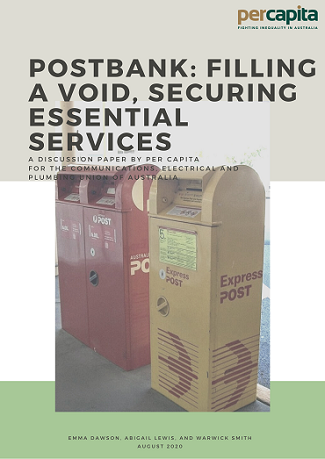The Australian Alert Service is the weekly publication of the Australian Citizens Party.
It will keep you updated on strategic events both in Australia, and worldwide, as well as the organising activities of the Citizens Party.
To subscribe to the Australian Alert Service, it's easy, and it's secure.
Click here for subscriptions within Australia
Click here for overseas subscriptions
Lead Editorial
5 August 2020
Vol. 22. No. 31
Victoria’s stringent Stage 4 lockdown has intensified the debate over the trade-off between public health and the economy. Notably, however, neither side, including those who are most loudly championing the cause of the economy and demanding a “cost-benefit analysis”, are expressing any vision for the economy that is desperately needed right now to help get us through this challenge. In any life situation, when you are grinding it out in the tough times, you need a vision of where you are going. In Australia today, where’s the vision?
December 1942 was the height of the Second World War. The Nazis had a stranglehold on Europe and the advance of the Japanese had only just been halted on Australia’s doorstep in Papua New Guinea. There was no sense of when the war would end, which wouldn’t be for another two and a half years. Nevertheless, December 1942 was when Prime Minister John Curtin decided to establish the Department for Post-War Reconstruction, to foster a vision of what Australia could be after the war. That kind of thinking not only ensured Australia achieved great things after the war, including the amazing Snowy Mountains Scheme, it represented the quality of visionary thinking that also ensured Australia got through the war.
So far what we have seen from Australia’s political leaders is a vain hope that Australia’s economy will return to normal. It’s been evident for a while this won’t happen, but more importantly it’s a terrible goal, because “normal” has been a disaster. Normal is a housing bubble, a financial casino, an over-dependence on raw materials exports, and record foreign and household debt. One Nation Senator Malcolm Roberts, whose bill to amend the bail-in law is causing huge waves in Canberra, pointed out to the Australian Alert Service this flaw in the thinking of the political class: “They just want to get the economy back to where it was”, he said. “We need to aim much higher and get it back to what it should have been, without deregulation, privatisation, green tape and outsourcing industries.”
The two major parties are the most atrophied in their thinking, stuck in the outlook that got us to this point. While Labor’s shadow treasurer Jim Chalmers cited the 1942 establishment of the Department of Post-War Reconstruction back in March to emphasise the importance of planning for the post-pandemic economy, he had no ideas for what should be done. Visionary thinking is starting to emerge, however: Senator Roberts is one of the number of politicians to loudly champion a national bank, along with Liberal Senator Gerard Rennick, Nationals MP George Christensen, the Greens and Bob Katter, with whom the Citizens Party is working to introduce a bill into Parliament for a national development bank.
Now leading unions have also spoken out to promote the national bank solution. The Per Capita think tank has just released a detailed discussion paper for the Communications, Electrical and Plumbing Union (CEPU) on a proposal for a public post office savings and loan bank. The paper, entitled “Postbank: Filling a Void, Securing Essential Services”, advocates a less powerful national option than the Citizens Party’s national development bank, one which concentrates on taking deposits and making loans to force the private banking oligopoly to compete. Nevertheless, it presents an excellent summary of the history of national banking in Australia through the original Commonwealth Bank.
“The story of the Commonwealth Bank of Australia (CBA) is a dramatic illustration of the enormous potential of public banking as well as a warning of the private opposition to it”, the paper declares. “Two of the key figures in the establishment of the CBA were its first governor, Denison Miller, and King O’Malley, both ex-bankers. They understood the money-creating power of banks and believed this could be utilised for public benefit.”
With left-wing unions and Liberal/National/One Nation politicians all embracing such a vision, we can win this!
In this issue:
- Tangled web? Senate Committee delays ‘bail-in’ report—demand hearings!
- Senate committee must not gate-keep the bail-in inquiry—demand public hearings!
- Legal analysis: Butler’s reply to APRA on financial stability
- Has Canberra got cold feet on Cold War with China?
- World must work together on COVID-19 treatments
- India’s ‘Plan B’ for bail-in
- Mounting opposition to war with China
- Mobilise your MP and local media
- Fusion power can unite the world
Click here for the archive of previous issues of the Australian Alert Service








